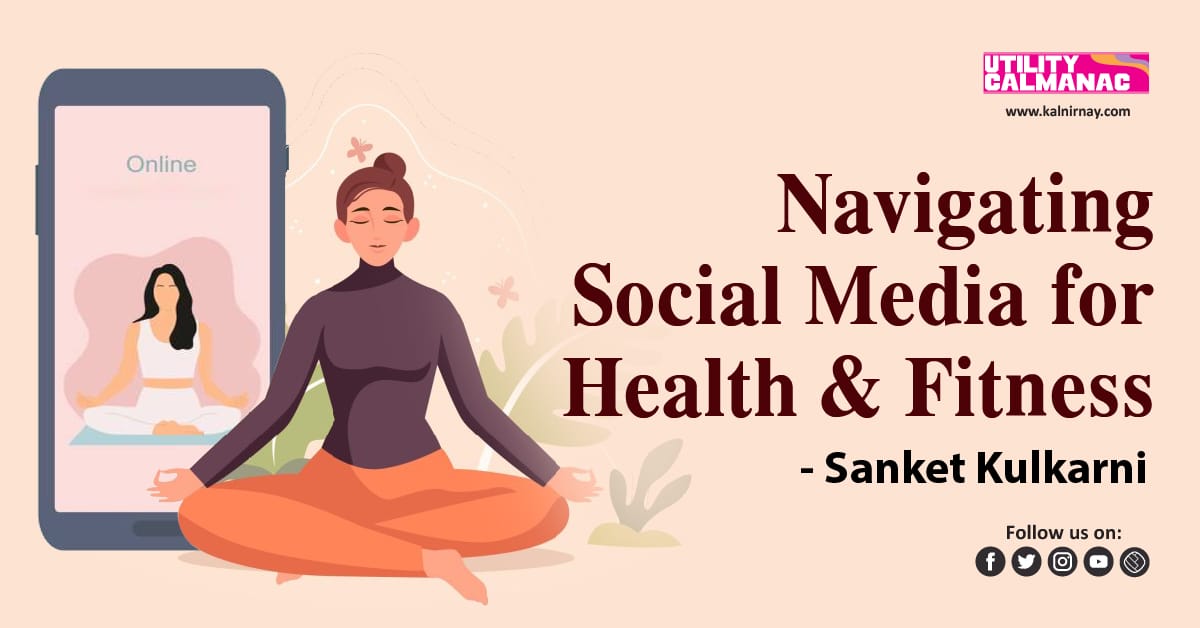Navigating Social Media for Health and Fitness
To scroll or not to scroll – the ultimate question.
The omnipresence of social media defines the current era. Its impact is evident in our daily routines, as we increasingly turn to these platforms for information and problem-solving. Surprisingly, many individuals have incorporated social media into their health regimens, relying on it for exercise inspiration and dietary guidance.
The number of people engaging in fitness activities based on social media content – be it Instagram Reels, WhatsApp forwards, or messages from various platforms – is on the rise. Unfortunately, this trend often neglects the critical aspect of verifying the authenticity of such information, posing potential harm to one’s well-being.
The role of social media in health awareness
Social media consumption in the past few years has been effective in conveying the importance of nutritional value in our diets through engaging audio-visual media such as reels, messages, and posts, reaching a broader audience than traditional medical advice.
Health consciousness appears to be on the rise, with topics like diet, weight loss, calorie intake, and workouts dominating discussions – a lot of it due to social media. But, the mere virality of a video does not make it a suitable blueprint for your health strategy. Every individual’s body type, medical condition, age, gender, daily routines, and lifestyle vary significantly. Digital technology has its limitations in addressing these unique aspects. Thus, it’s crucial to question the feasibility of adopting someone else’s exercise or diet regimen from a video or reel. Instead of blindly following social media trends, seek guidance from qualified experts.
Social media’s underlying health risks!
Currently, exercise routines and dietary choices are influenced by YouTube videos and content across different social media platforms. However, it is essential to remember that these choices should align with one’s individual body type. Undertaking such health experiments without consulting an expert can prove detrimental.
Recent fad diets like keto and intermittent fasting have gained prominence across media channels. Yet, before embracing any such diet, it’s crucial to consider your body’s unique requirements and any underlying medical conditions. It’s essential to recognise that these diet plans often stem from personal experiments and may lack endorsement from reputable expert organisations. Nutritional value plays a pivotal role in our well-being, mirroring the ‘Eat Well Plate Theory’ prevalent in the UK. A poorly balanced diet can lead to nutrient and mineral deficiencies, resulting in issues such as hair loss, weakened bones, anaemia, low haemoglobin levels, and compromised immunity. Dieting is not a one-size-fits-all concept but rather a personalised journey, and this is a fact that cannot be ignored.
‘Exercising’ caution
In addition to dietary content, exercise videos, including seated exercises and short 10- or 20-minute workouts, frequently go viral on social media platforms. It’s crucial to understand that high views and likes do not inherently signify the accuracy of a reel, video, or post. Exercise should target the entire body, not isolated areas. It’s essential to prioritise your health over trending fitness routines. Social media platforms predominantly attract young users, with even children exposed to these trends. Children, in particular, are highly susceptible to these influences, often endorsing and liking content without critically assessing its value. To counteract this, we must make sure we scrutinise the sources we follow on social media and seek direct advice and guidance from experienced dietitians regarding dietary matters. If you wish to follow experts on social media, ensure they are indeed qualified. When it comes to exercise, it’s prudent to consult a trained professional rather than relying solely on viral fitness trends. Moreover, if you have any mental or physical health concerns, consult a relevant specialist for guidance.
It is vital to not embark on any exercise or dietary regimen without consulting a trained and experienced specialist.
It all boils down to one thing we must all adopt in any aspect of our lives – moderation. Consume social media content moderately, and consult an expert before embarking on anything adventurous. Here are some tips on how:
- Using social media for fitness
- Follow only reliable and authoritative sources.
- Exercise caution when attempting any actions based on social media content.
- Considerations for growing children
- Include protein and ample water in their diet.
- Maintain regular meal schedules.
- Encourage participation in activities such as archery, gymnastics, dance, or other outdoor sports.
- Navigating the vast world of internet and social media
- Exercise discretion in choosing the right sources.
- Explore diet and exercise-related eBooks on platforms like Amazon Kindle.
- Utilise reliable videos and online classes from reputable websites.
To read more English blogs, please visit our blog section.
Sanket Kulkarni
The author is a fitness consultant, sports nutritionist, and celebrity fitness consultant.

